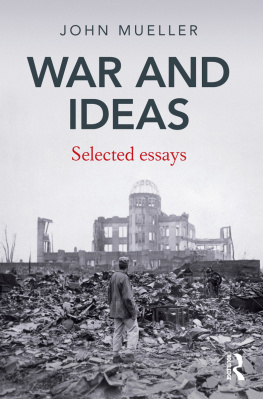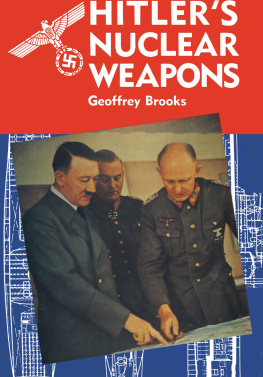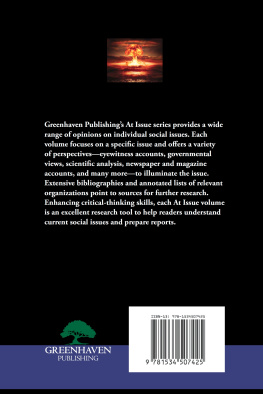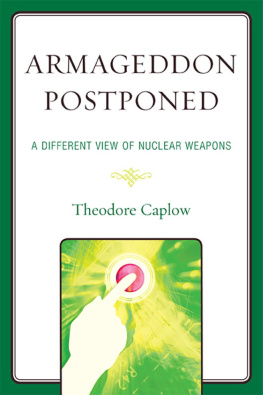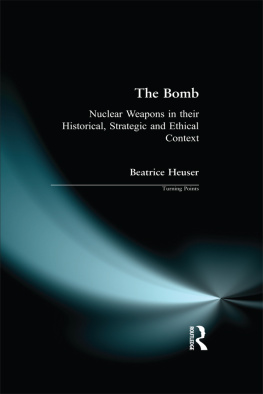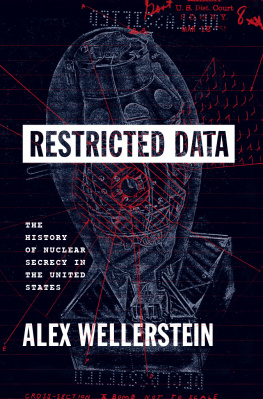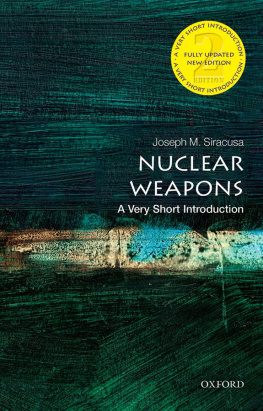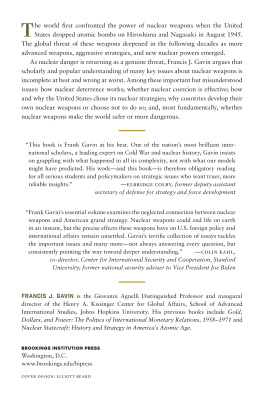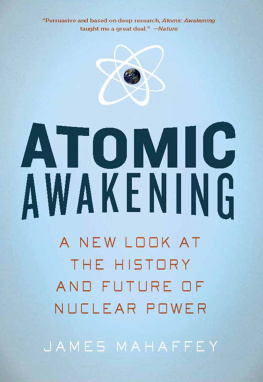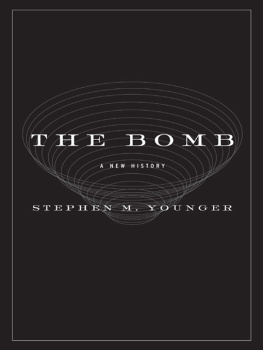Epilogue and an Inventory of Propositions
In The Absolute Weapon, a book published a year after Hiroshima, Bernard Brodie, who was to become one of the eras most important defense strategists, proclaimed there to be twin facts about the new bomb: it exists and its destructive power is fantastically great.
Working from that perspective, the central task Brodie set for himself in this seminal book was to consider how the new weapon could be applied to military strategy. At the time, he argued that the chief purpose of the weapons, indeed of the entire military establishment, should be to deter (or avert) wars: indeed, he contended, there can be almost no other useful purpose. Therefore, the first and most vital step in the atomic age would be to guarantee to ourselves in case of attack the possibility of retaliation in kind.
The quest to provide Brodies guarantee led to decades of exquisite theorizing and massive expenditure, and Brodie was very much part of this development. Indeed, much of the atomic obsession and the fanciful exaggeration of external threats this book considers can be seen to stem semi-logically from Brodies twin facts and from his books somewhat overstated titlealthough Brodie nowhere calls the weapon absolute (whatever that means) in the text. Because the weapons exist and can inflict destruction that is fantastically great, it might seem to follow that they are also fantastically important.
In the end, such highly unconventional, even iconoclastic, views caused him to be shunned in the intellectual community he had done so much to create.
Brodie was something of a guru for me. I dont know whether he would necessarily agree with everything in this book, but Id like to think that much of it is essentially an extrapolation from some of his thinking as he sought to reevaluate both the intellectual and the practical implications of the premises he had so influentially set out in 1946. It is, in particular, an extension of his concern about policy perspectives spun out so prodigiously over the decades by what he called the cult of the ominous.
An inventory of some of the propositions put forward here in that spirit would include the following.
Obsession with nuclear weapons, sometimes based on exaggerations of the weapons destructive capacity, has often led to policies that have been unwise, wasteful, and damaging
Nuclear weapons have been of little historic consequence and have not been necessary to prevent World War III or a major conflict in Europe
Militarily, the weapons have proved to be useless and a very substantial waste of money and of scientific and technical talent: there never seem to have been militarily compelling reasons to use them, particularly because of an inability to identify suitable targets or ones that could not be attacked about as effectively by conventional munitions
Although nuclear weapons seem to have at best a quite limited substantive impact on actual historical events, they have had a tremendous influence on our agonies and obsessions, inspiring desperate rhetoric, extravagant theorizing, wasteful expenditure, and frenetic diplomatic posturing
Wars are not caused by weapons or arms races, and the quest to control nuclear weapons has mostly been an exercise in irrelevance
The atomic bombs were probably not necessary to induce the surrender of the Japanese in World War II
Those who stole American atomic secrets and gave them to the Soviet Union did not significantly speed up the Soviet program; however, obsession about that espionage did detrimentally affect American foreign and domestic policy, something that led to a very substantial inflation in the estimation of the dangers that external and internal enemies presented
Changes in anxieties about nuclear destruction have not correlated at all well with changes in the sizes or the destructive capacities of nuclear arsenals
Arms reduction will proceed most expeditiously if each side feels free to reverse any reduction it later comes to regret; formal disarmament agreements are likely simply to slow and confuse the process
The economic and organizational costs of fabricating a nuclear arsenal can be monumental, and a failure to appreciate this has led to considerable overestimations of a countrys ability to do so
The proliferation of nuclear weapons has been far slower than routinely predicted because, insofar as most leaders of most countries (even rogue ones) have considered acquiring the weapons, they have come to appreciate several defects: the weapons are dangerous, distasteful, costly, and likely to rile the neighbors
The nuclear diffusion that has transpired has proved to have had remarkably limited, perhaps even imperceptible, consequences
Nuclear proliferation is not particularly desirable, but it is also unlikely to accelerate or prove to be a major danger
Strenuous efforts to keep rogue states from obtaining nuclear weapons have been substantially counterproductive and have been a cause of far more deaths than have been inflicted by all nuclear deto-nations in history
The weapons have not proved to be crucial status symbols
Not only have nuclear weapons failed to be of much value in military conflicts, they also do not seem to have helped a nuclear country to swing its weight or dominate an area
Given the low value of the weapons and their high costs, any successes in the antiprolifertion effort have been modest and might well have happened anyway
Strenuous efforts to prevent nuclear proliferation can act as a spur to the process, enhancing the appeal ofor desperate desire fornuclear weapons for at least a few regimes, an effect that is often ignored
The pathetic North Korean regime mostly seems to be engaged in a process of extracting aid and recognition from outside, and a viable policy toward it might be to reduce the threat level and to wait while continuing to be extorted rather than to enhance the already intense misery of the North Korean people
If Iran actually does develop something of an atomic arsenal, it will likely find, following the experience of all other states so armed, that the bombs are essentially useless and a very considerable waste of money and effort
Although there is nothing wrong with making nonproliferation a high priority, it should be topped with a somewhat higher one: avoiding policies that can lead to the deaths of tens or hundreds of thousands of people under the obsessive sway of worst-case scenario fantasies
It is likely that no loose nukesnuclear weapons missing from their proper storage locations and available for purchase in some wayexist
It is likely there is no such thing as a true black market in nuclear materials
The evidence of any desire on al-Qaedas part to go atomic and of any progress in accomplishing this exceedingly difficult task is remarkably skimpy, if not completely negligible, while the scariest stuffa decades worth of loose-nuke rumor and chatter and hypeseems to have no substance whatever
Because of a host of organizational and technical hurdles, the likelihood that terrorists will be able to build or acquire an atomic bomb or device is vanishingly small
Despite the substantial array of threats regularly issued by al-Qaeda (the only terrorist group that may see attacks on the United States as desirable), and despite the even more substantial anguish these threats have inspired in their enemies, the terrorist groups capacity seems to be quite limited
One reason for al-Qaedas remarkably low activity in the last years is that 9/11 proved to be substantially counterproductive from alQaedas standpoint; indeed, with 9/11 and subsequent activity, the terrorist group seems mainly to have succeeded in uniting the world, including its huge Muslim portion, against its violent global jihad


